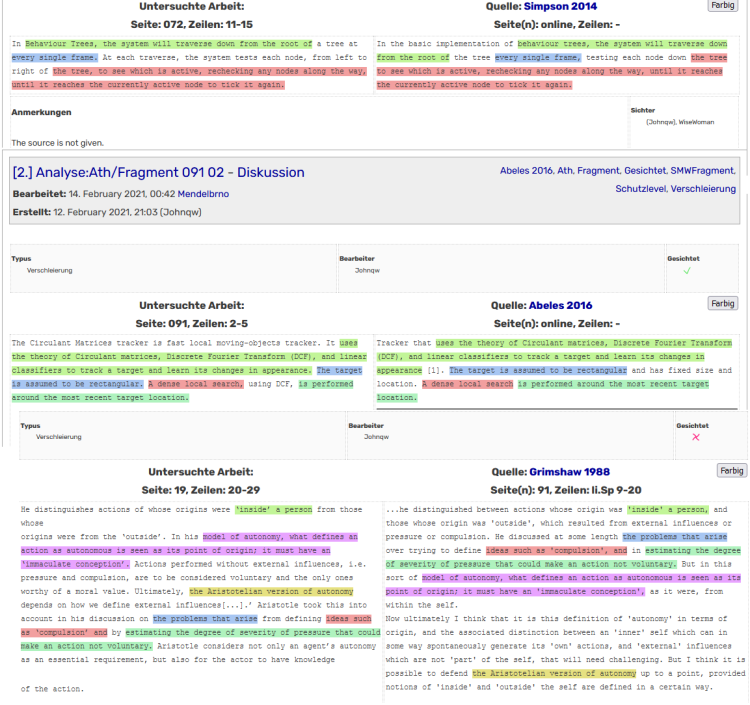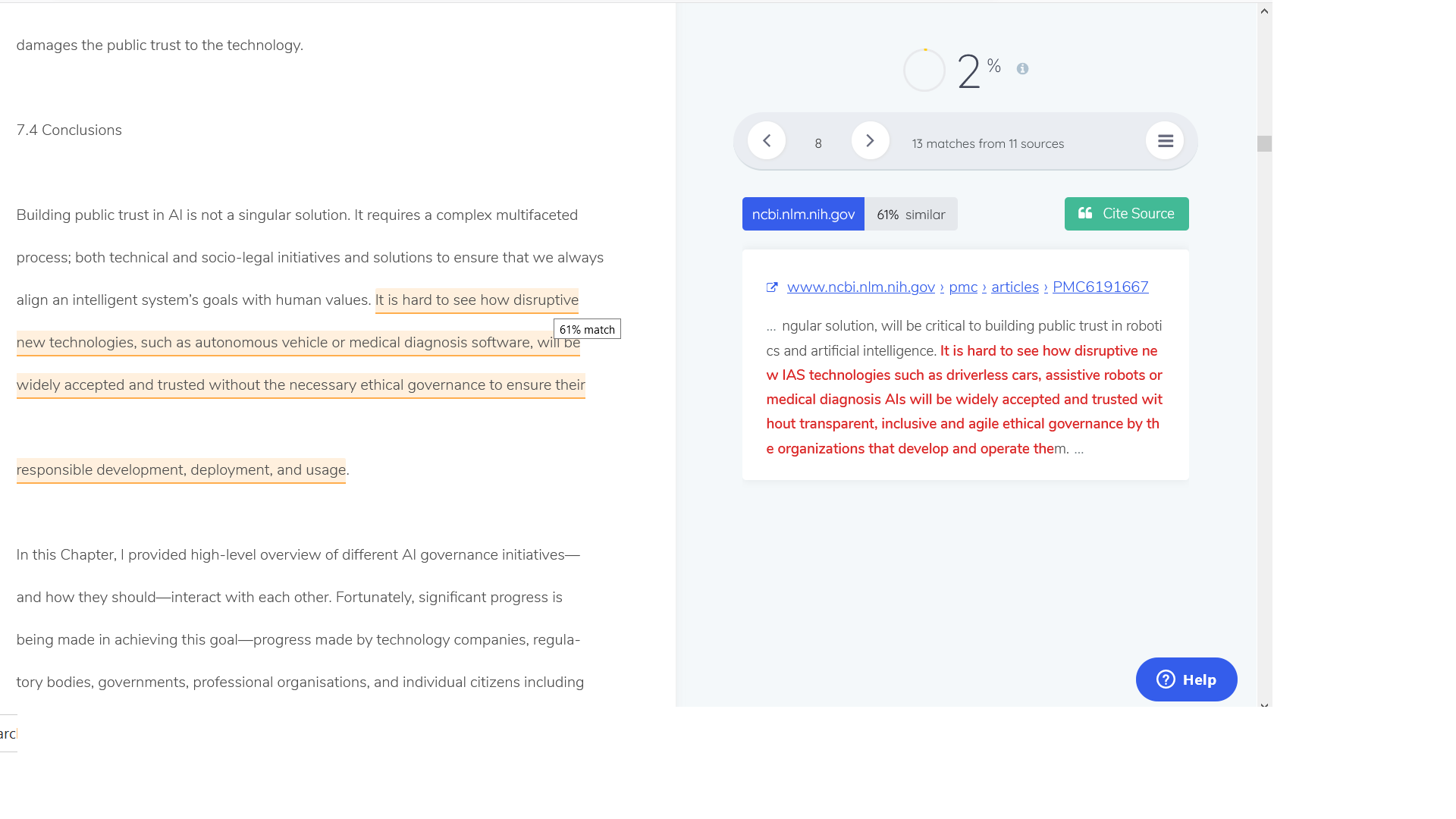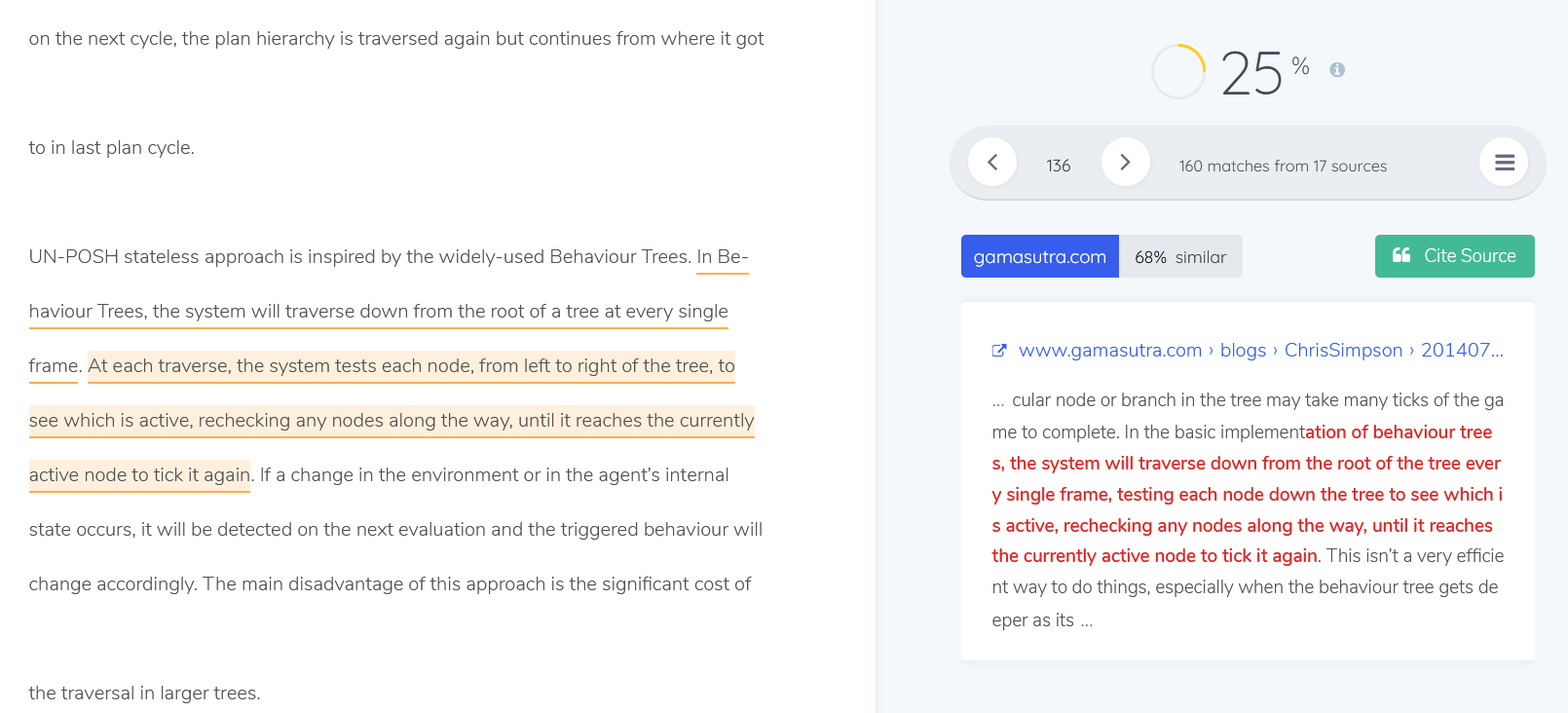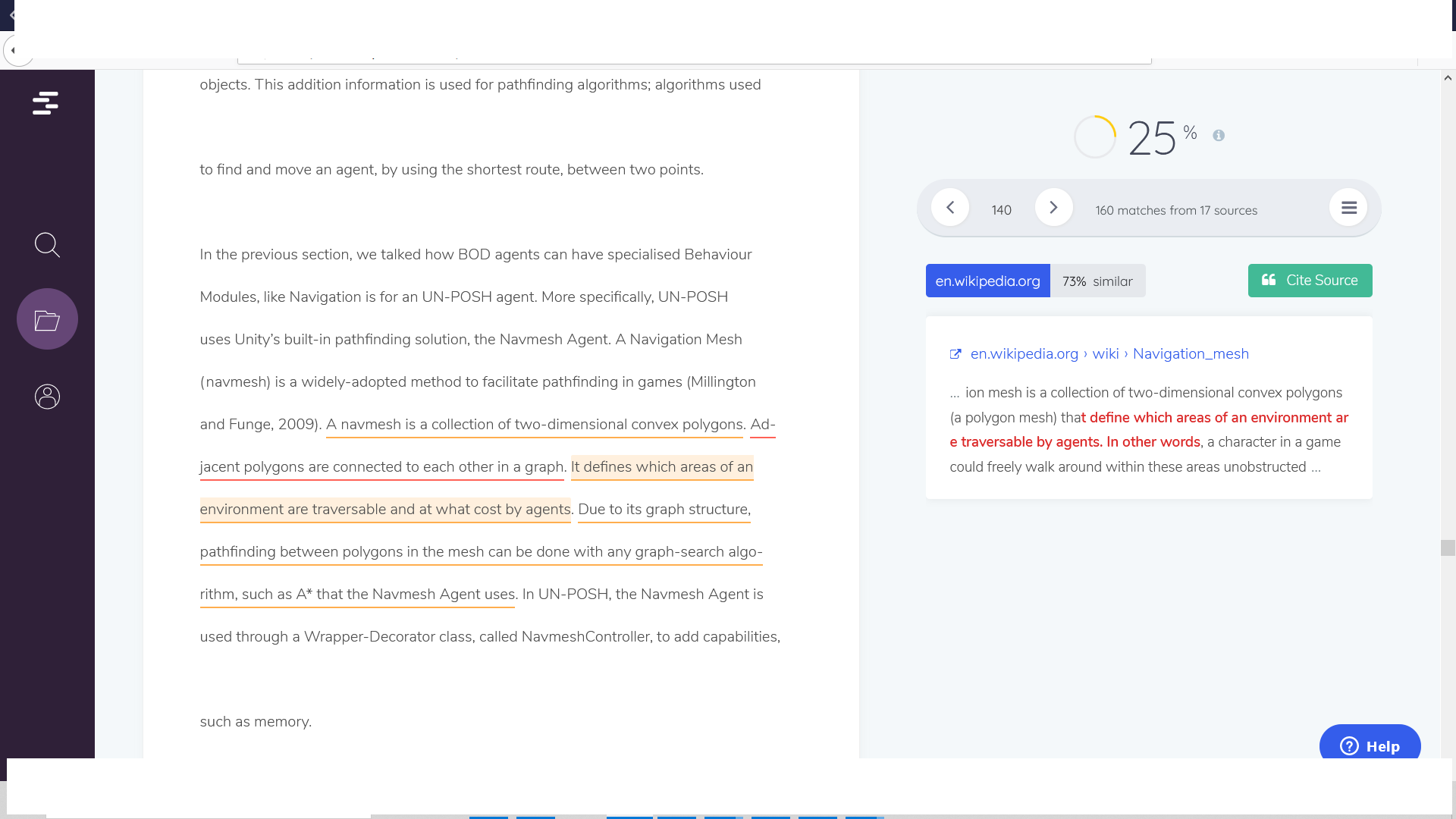There are two Reddit posts in r/AskAcademia and a more detailed and updated vroniplag page (this specific page contains solely segments from Andreas Theodorou’s thesis) about a case of academic plagiarism which is shown below:
The academic in question is Andreas Theodorou who obtained his Phd thesis from the University of Bath and who is currently a researcher at the University of Umea. He also has a company that sells crash AI ethics courses to industrialists, VeRAI AB with his mentor Virginia Dignum.
While some may be tempted to call his rambling speech drug induced, according to his students this is his usual way of speaking.
His thesis contains several plagiarized sentences, most of which are not detectable by plagiarism detection software. It appears that Andreas has taken steps to avoid being discovered. He appears to have methodically inspected each of his plagiarized sentences with a content similarity detector and made minor changes to them in order to avoid being caught. Many of these phrases can still be found via a manual google search.
Copying certain words in his Phd thesis(https://researchportal.bath.ac.uk/files/195601231/andreasTheodorouThesis.pdf) is sometimes unreliable perhaps rendered so intentionally in order to minimize the chances of it being searched/checked for similarities with other works .
A plain text version of it, that was created with an online OCR app(https://www.onlineocr.net/) can be found here.
It is determined that the documents where the copied text originates were published much earlier than his thesis.
Some of the parts of his Phd thesis that are plagiarized can be seen below:









Below are some phrases in his thesis that are undetectable by plagiarism detectors but are still detectable by google search:
The line at 2.3.2. Moral Patiency
“On this definition, all moral agents are also moral patients, but not all moral patients are moral agents
that seems to originate from here:https://quizlet.com/348405454/ethics-exam-3-flash-cards/ as
“ All moral agents are moral patients, but not all moral patients are moral agents.”
“He then reflects upon how culture determines the moral status of all entities”
that also originates from a flashcard: https://quizlet.com/10587400/ethics-flash-cards/
as
“ the moral code of a culture determines the moral status of things within that culture”
The line in the shared mental models found at page 43 in his thesis:
“understanding the intentions of others is a fundamental building block of social behaviour”
originating from here: https://www.ncbi.nlm.nih.gov/pmc/articles/PMC1044835/ as
“Understanding the intentions of others while watching their actions is a fundamental building block of social behavior”
“Calibration of trust refers to the correspondence between a person’s trust in the system and the system’s capabilities “
that was plagiarized by Andreas and which seems to originate from here .
Since we have only checked a rather small part of his thesis and found plagiarized sections on average once every fifth sentence, it is very likely that the rest of his work contains a significant number of plagiarized sentences that are slightly paraphrased in order to not be easily detectable. Based on our short sample, we estimate it to be around 20% of the thesis. We were informed by one of his associates that Andreas is certainly no stranger to plagiarism and were told that in the past he has done similarly dishonest things for his BSc projects. Parts of his thesis have been published, or have been presented at conferences, without proper citation.
Andreas has falsely claimed a number of times now that the
The case of Andreas T. is being more formally and extensively investigated by vroniplag here:
https://vroniplag.wikia.org/de/wiki/Analyse:Ath
Andreas has claimed that the text that is identical in his Phd to uncited sources is just composed of”common phrases”, this is highly unlikely to be the case since the indentical text is usually more than 9 consecutive words and is only found in one other earlier source from which there are usually multiple 9+ identical word phrases in his Phd.